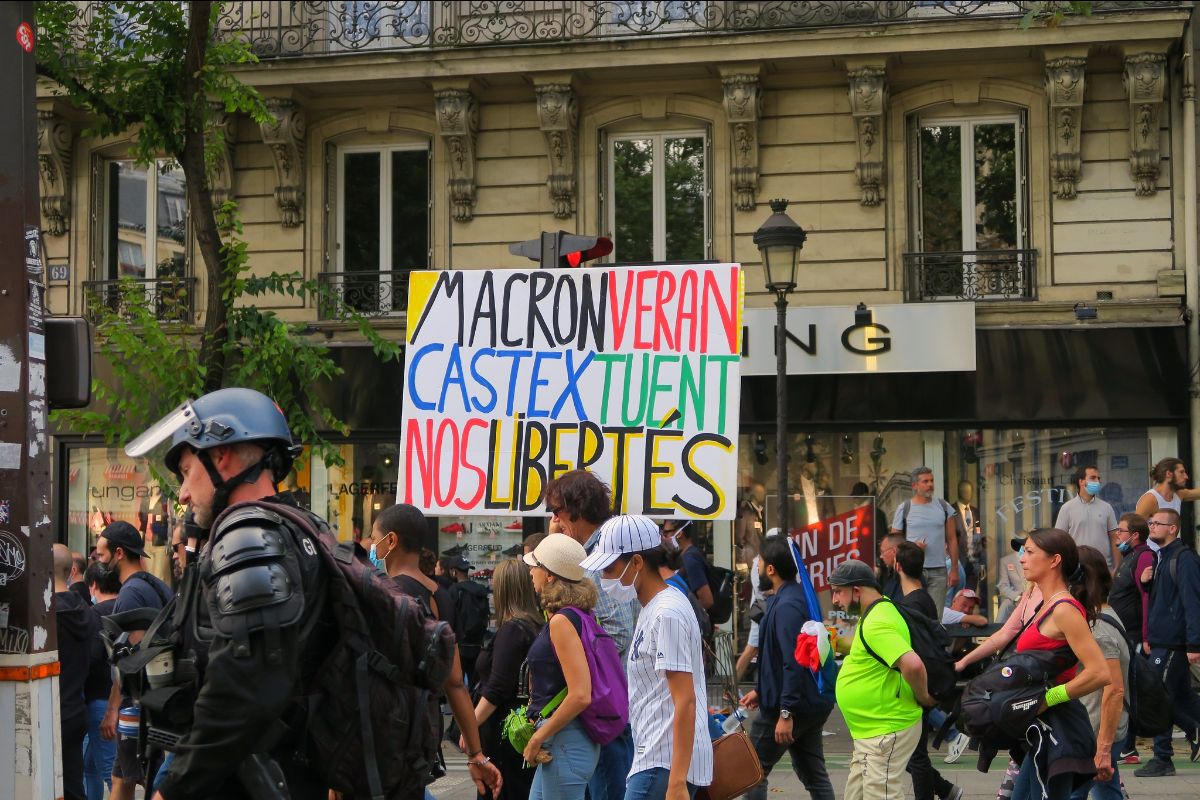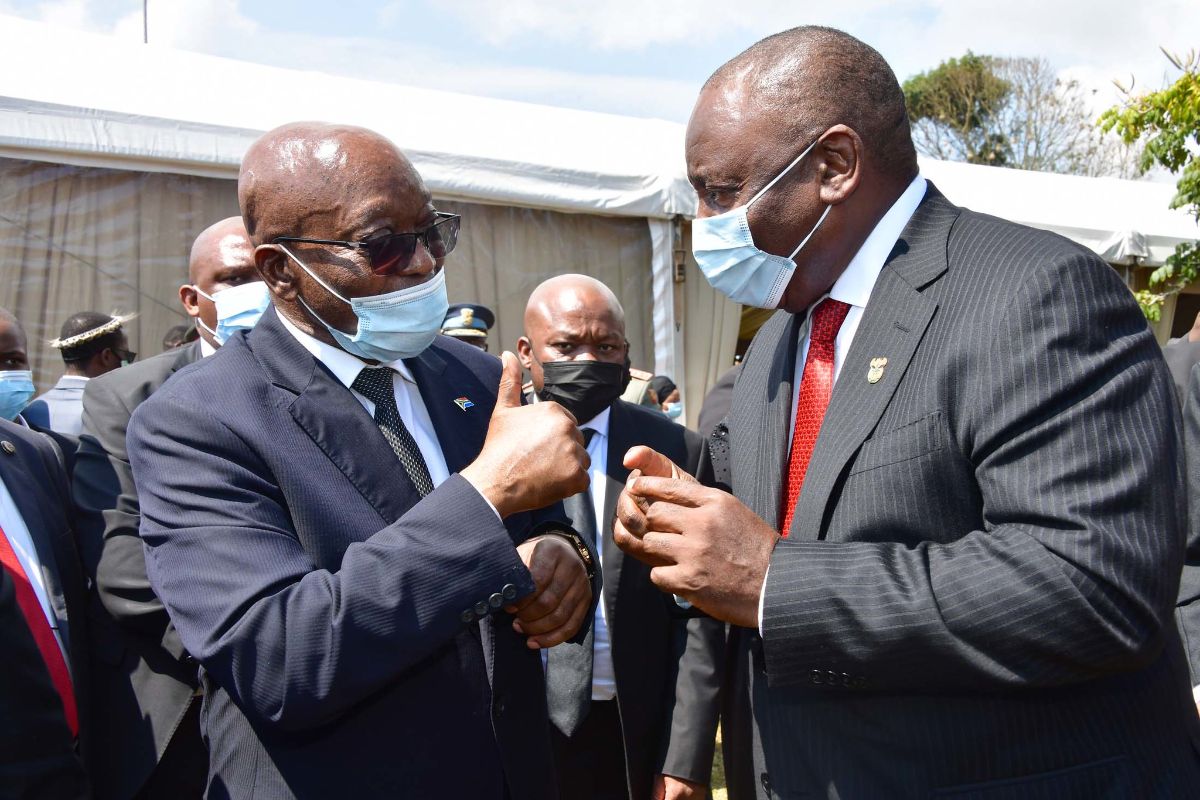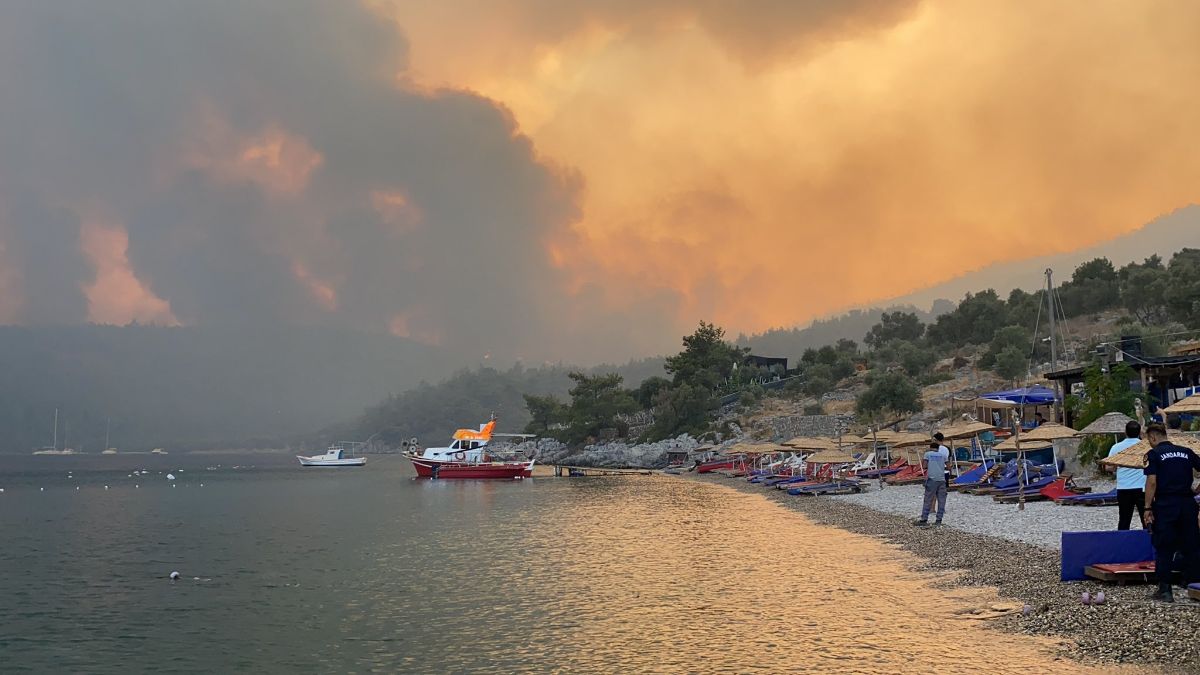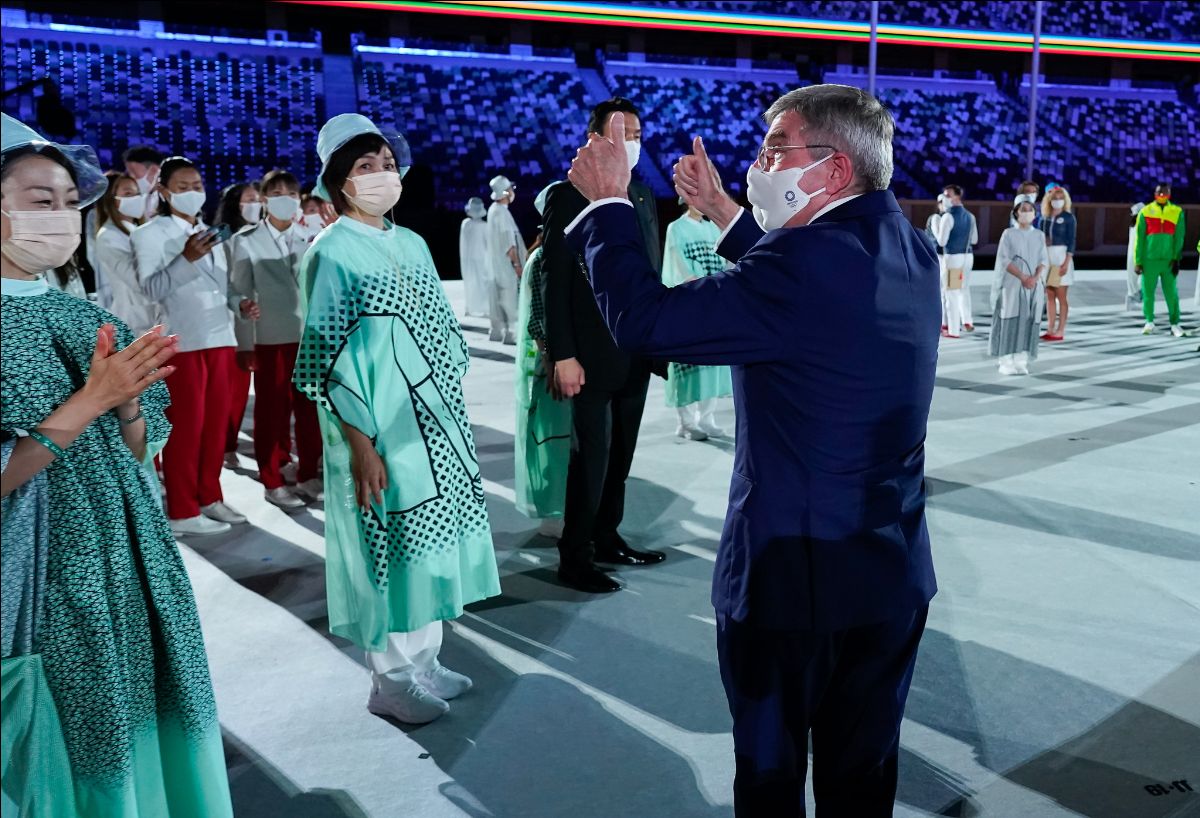Top photo: International Olympic Committee President Thomas Bach gives a thumbs-up to health care workers during the opening ceremony in Tokyo on July 23. (Photo: IOC / Greg Martin)
Welcome to Factal Forecast, a look at the week’s biggest stories and what they mean from the editors at Factal. We publish our forward-looking note each Thursday to help you get a jump-start on the week ahead. If this email was forwarded to you, and you like what you see, you can subscribe for free.
In November 1994, an emergent group calling itself the Taliban took control of Kandahar, Afghanistan’s second-largest city, with a stated goal of ridding the country of its corrupt leaders and establishing a society based on strict Islamic law. As the United States winds down its presence in Afghanistan more than a quarter century later, the group is once again on the cusp of retaking control of Kandahar, its spiritual birthplace and former stronghold in the country’s south. Read about the Taliban’s recent emergence in this month’s Debrief.

A look ahead:
Aug. 8 / Tokyo Olympics closing ceremony: The 2020 Tokyo Summer Olympics are coming to a close Sunday after a year of pandemic-related controversy and delay.
- What’s happened so far: Despite domestic pressure to cancel, the Olympics began late last month as Tokyo entered its fourth state of emergency amid rising coronavirus cases. The rise in cases has continued unabated, breaking records not only in Tokyo, but also across Japan. So far, nearly 300 people involved with the Games have tested positive for the virus since the beginning of July.
- The impact: Prime Minister Yoshihide Suga claimed there is no link between the surge in coronavirus cases and the Olympics. Even so, the Japan Medical Association called for a nationwide state of emergency to contain the continued spread of the virus. Fans again will not be present at the closing ceremony, though remaining athletes, dignitaries and games officials will attend.
Aug. 9/ Canada opens border to vaccinated Americans: The Canadian government will begin allowing entry to vaccinated American citizens and permanent residents starting Monday after more than a year of closed borders due to the coronavirus pandemic. A full reopening for international travel is expected Sept. 7.
- What’s happened so far: After a 17-month closure, Canada plans to reopen its borders with the United States to Americans who have been fully vaccinated for at least 14 days prior to entering the country. The government said this reopening is thanks to the rising vaccination rates and declining coronavirus cases in Canada. All passengers will still be required to provide a negative molecular coronavirus test before entering the country.
- The impact: Officials say the preliminary step allows the government to “fully operationalize” adapted border measures ahead of the full reopening next month. By September, Canada plans to lift border restrictions to any fully vaccinated travelers. But pre-entry and post-entry testing is expected to continue to be required to some degree, as a way to monitor variants of concern and vaccine effectiveness. The three-night, government-authorized hotel stay requirement will also be scrapped for all travelers as of Aug. 9, but fully vaccinated travelers must still provide a quarantine plan and be prepared to quarantine in case border officials find they do not meet the necessary requirements.

Aug. 9/ Expansion of France’s coronavirus pass: Starting Monday, anyone visiting restaurants and bars in France will need proof of coronavirus vaccination, recent infection or a negative test result as the country expands the scope of its coronavirus pass.
- What’s happened so far: Showing a coronavirus pass is already obligatory when visiting cultural venues with crowds of more than 50 people, but on July 25, France’s parliament voted to expand the requirement to all bars, restaurants and some forms of transport. The decision prompted widespread demonstrations across the country by protesters affiliated with the Yellow Vests group. The legislation also mandates vaccination for health care workers and a self-isolation period of 10 days for anyone who tests positive for the virus.
- The impact: Although the legislation to extend the pass has already been approved by parliament, it cannot come into force until it is approved Thursday by France’s Constitutional Council. Further protests are likely as opposition to the pass remains high. President Emmanuel Macron said demonstrators are free to “express themselves in a calm and respectful manner” but warned protesting would not make the virus disappear.
Aug. 10/ Australia launches 2021 census: Amid a global pandemic and widespread lockdowns, Australia will begin a compulsory census Tuesday that is expected to be like no other in the history of data collection in the country.
- What’s happened so far: With much of the country still under lockdown, the census can be completed online, including on mobile devices or through a paper copy. Additional census staff may be deployed for communities that need additional engagement and operate within coronavirus-safe guidelines. People who fail to complete the census could be fined up to $222 Australian dollars.
- The impact: The results will be used to shape the country’s health, education, transport and infrastructure needs. While there will be no specific coronavirus-related questions in the census, the agency expects that the data collected will provide key insights not just into population figures needed for vaccine rollout, but also the socio-economic impacts of the pandemic that will be used for recovery planning. The census will also include topic changes, including on current or past Australian Defense Force service and long-term health conditions.
Aug. 10/ Northrop Grumman launch: Aerospace giant Northrop Grumman is targeting Tuesday to launch its Cygnus spacecraft carrying cargo to the International Space Station.
- What’s happened so far: Northrop’s spacecraft is expected to depart from NASA’s Wallops Flight Facility in Virginia on an Antares rocket in order to bring supplies to the International Space Station in support of the Expedition 65 crew. The spacecraft is named after Ellison Onizuka, NASA’s first Asian-American astronaut who died in the Challenger shuttle explosion in 1986.
- The impact: The mission follows a mishap last week at the International Space Station when a Russian module had its thrusters misfire, pushing the space station out of place while losing attitude control. NASA will hope to avoid having to declare another “spacecraft emergency” this time around.

Zulu’s King Goodwill Zwelithini KaBhekuzulu in March 2021. (Photo: GCIS)
Aug. 11/ South African Zondo Commission: South Africa’s President Cyril Ramaphosa will give evidence to the Zondo Commission over two days starting Wednesday, just weeks after deadly riots related to the imprisonment of former President Jacob Zuma gripped parts of the country.
- What’s happened so far: The inquiry, formally known as the Commission of Inquiry into Allegations of State Capture, was set-up by former President Zuma’s administration in 2019 to investigate alleged corruption, fraud and other improprieties following a report by the country’s anti-graft body. Though he approved the commission, Zuma refused to appear before it and was handed a 15-month contempt of court sentence by the country’s constitutional court, leaving him as the first South African president to be jailed post-apartheid. This move triggered riots that left at least 215 dead and led to the arrest of more than 2,500 people, with extensive damage done to property following looting.
- The impact: According to the commission, which has now been sitting for more than 400 days, President Ramaphosa is due to give evidence “relating to the [African National Congress] in his capacity as the current President and former Deputy President of the party.” Earlier this year he gave evidence in relation to his time as president of the ANC, but not as the country’s leader, in which he said there was a delay in acting on allegations of corruption.
Aug. 11/ UEFA Super Cup in Belfast: One of Northern Ireland’s largest crowds since the beginning of the coronavirus pandemic will watch a soccer match on Wednesday between two of Europe’s best teams.
- What’s happened so far: Last year’s Super Cup, which was originally scheduled to be played in Portugal, ended up being postponed to September 2020 and moved to Budapest, Hungary, over coronavirus concerns. That match had a crowd of 15,180, after the Union of European Football Associations (UEFA) allowed people in the stands for the first time since the outbreak. This year’s match between English club Chelsea and Spanish club Villarreal will have an attendance of up to 13,000 people. Fans must also show proof of a negative coronavirus test to enter. The Northern Ireland Executive, however, eased several travel restrictions for people coming to watch the game.
- The impact: Northern Ireland has seen its number of cases jump over the last month due to the Delta variant. This large number of people travelling from overseas to the nation may lead to more cases and more government interventions to slow the spread of the disease. If cases drop, it may lead to Northern Ireland relaxing restrictions.
Aug. 12/ Zambia general election: Zambians will vote Thursday to elect the country’s next president and members of its National Assembly.
- What’s happened so far: The election comes in the wake of unrest in the capital city of Lusaka in which at least two people were killed in clashes between supporters of the ruling Patriotic Front and the main opposition United Party for National Development (UPND). President Edgar Lungu, who is facing a close race with UPND leader Hakainde Hichilema, ordered the deployment of the military to quell electoral violence. Meanwhile there are questions about how the election will be run, considering the country’s election commission scrapped the voter register and gave itself less than six weeks to replace it — a process that some claim is being used to skew the vote in favor of President Lungu.
- The impact: The Council on Foreign Relations said the election is shaping up to look “worryingly like a case study in ongoing democratic decline.” Worse yet, Amnesty International warned that years of intensifying repression has pushed Zambia “to the brink of a human rights crisis” ahead of the election. Regardless of the vote’s outcome, we could see additional unrest. Lungu himself said it’s possible the losing party will fail to accept the results in Zambia’s election.

What else matters:
Turkey fires: Wildfires are engulfing Turkey with nearly 150 forest fires erupting since July 28, primarily along the southwestern coast. The areas around the cities of Antalya, Manavgat, Adana, Bodrum and Marmaris have been hit particularly hard. Several people have died and thousands of residents have been displaced by the fires, while tourists were evacuated by boat from threatened resort towns. Buildings have been heavily damaged. The fires have been fueled by a severe heat wave with high temperatures increasing electricity consumption and leading to blackouts in major cities, including Ankara and Istanbul.
- Watch for: Efforts to control the blazes continue. Turkey has appealed for international aid, and the EU has sent three firefighting planes to the country. Other European nations have also contributed assistance. Wildfires also have broken out across much of southern Europe, including Greece, Spain and Italy. High temperatures are expected to continue.
Delta variant update: Facing the spread of the more contagious Delta coronavirus variant amid lagging vaccination rates, France and Italy have moved to require health passes for entry to most public venues. Despite some vocal opposition, both countries have since seen a boost in vaccine demand. On Tuesday, New York City Mayor Bill de Blasio announced his city would follow suit, requiring proof of vaccination for indoor dining, gyms and performance venues. Other U.S. locales have yet to take that step, but a growing number of cities and states have reinstituted mask requirements for indoor public spaces. California is among the states that have added a vaccination requirement (or frequent testing) for state workers, while health systems like Kaiser Permanente have also rolled out vaccine mandates in recent days.
- Watch for: With record case figures being reported in Tokyo, new one-day high death totals in Russia, and hospitalizations at their peak in parts of the United States, concerns are mounting about the latest virus wave. The situation prompted Dr. Anthony Fauci to say last week “things are going to get worse,” but that there are no plans to reinstitute wide-ranging lockdowns. Meanwhile, people in some parts of the world have grown increasingly weary of coronavirus restrictions, with thousands protesting in Sydney late last month as parts of that country struggle to control outbreaks.
Extended outlook: What’s on our radar in the coming weeks
Aug. 5: Swearing-in of Iranian President-elect Raisi
Aug. 6: New protests planned in Bogotá; Italy coronavirus pass comes into effect; Canada border workers could begin strike
Aug. 7: Start of France’s Ligue 1; Texas’ special session ends
Aug. 8: Olympics closing ceremony; NBA summer league begins
Aug. 9: Canada opens border to vaccinated Americans; France set to enforce vaccine passport
Aug. 10: 2021 Australian census; launch of Northrop Grumman’s Cygnus spacecraft planned
Aug. 11: UEFA Super Cup in Belfast; South African President Ramaphosa to appear before Zondo Commission
Aug. 12: Zambia general election
Aug. 13: Premier League, La Liga and Bundesliga begin
Aug. 16: Poland must comply with EU court ruling or face fines
Aug. 17: Nova Scotia, Canada, general election
Aug. 20: Mexico, U.S. agree GM Silao union vote will be held
Aug. 21: NYC Homecoming concert
Sept. 1: Singapore to ban domestic elephant ivory trade
Sept. 5: Hong Kong legislative election

